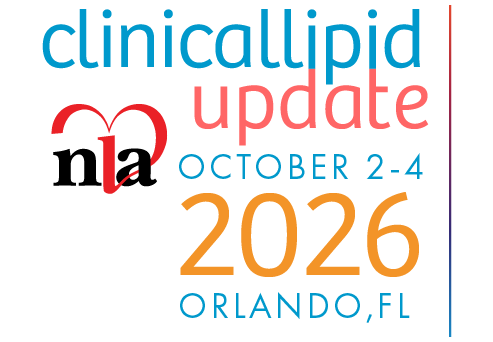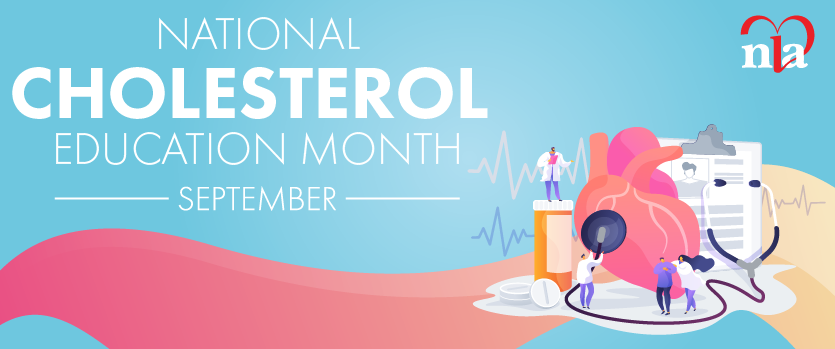REPATHA® NOW INDICATED FOR ADULTS AT INCREASED RISK FOR MAJOR ADVERSE CARDIOVASCULAR EVENTS DUE TO UNCONTROLLED LDL-C
THOUSAND OAKS, Calif., Aug. 25, 2025 /PRNewswire/ -- Amgen (NASDAQ:AMGN) today announced that the U.S. Food and Drug Administration (FDA) has broadened the approved use of Repatha® (evolocumab) to include adults at increased risk for major adverse cardiovascular events (MACE) due to uncontrolled low-density lipoprotein cholesterol (LDL-C), commonly known as 'bad cholesterol.' The update removes a prior requirement for a patient to have been diagnosed with cardiovascular (CV) disease.
"Far too many adults at risk of cardiovascular disease are not achieving their LDL-C goals, despite it being one of the most modifiable risk factors for a heart attack or stroke," said Murdo Gordon, executive vice president of Global Commercial Operations at Amgen. "This label update highlights the real-world need for additional treatment options for at-risk patients. Repatha is an effective therapy for reducing LDL-C, particularly in patients whose disease remains uncontrolled with statins or who cannot tolerate them."
In addition to expanding Repatha's label to include adults at increased risk of MACE, the FDA also:
- expanded the use of Repatha alone (monotherapy) to include patients with a rare, genetic form of high cholesterol known as homozygous familial hypercholesterolemia (HoFH); and
- emphasized that Repatha should be used alongside diet and exercise for managing high cholesterol.
Repatha was first approved in 2015 and has been used by more than 5 million people worldwide.
About Repatha® (evolocumab)
Repatha is a human monoclonal antibody that inhibits proprotein convertase subtilisin/kexin type 9 (PCSK9). Repatha binds to PCSK9 and inhibits circulating PCSK9 from binding to the low-density lipoprotein (LDL) receptor (LDLR), preventing PCSK9-mediated LDLR degradation and permitting LDLR to recycle back to the liver cell surface. By inhibiting the binding of PCSK9 to LDLR, Repatha increases the number of LDLRs available to clear LDL from the blood, thereby lowering LDL-C levels. The clinical benefits and safety of Repatha have been studied for 15 years in 50 clinical trials with over 57,000 patients.
Repatha is approved in more than 74 countries, including the U.S., Japan, Canada and in all 28 countries that are members of the European Union. Applications in other countries are pending.
Important U.S. Safety Information
INDICATIONS
Repatha is a PCSK9 (proprotein convertase subtilisin/kexin type 9) inhibitor indicated:
- To reduce the risk of major adverse cardiovascular (CV) events (CV death, myocardial infarction, stroke, unstable angina requiring hospitalization, or coronary revascularization) in adults at increased risk for these events.
- As an adjunct to diet and exercise to reduce low-density lipoprotein cholesterol (LDL-C) in:
- adults with hypercholesterolemia.
- adults and pediatric patients aged 10 years and older with heterozygous familial hypercholesterolemia (HeFH).
- adults and pediatric patients aged 10 years and older with homozygous familial hypercholesterolemia (HoFH).
The safety and effectiveness of Repatha® have not been established in pediatric patients with HeFH or HoFH who are younger than 10 years old or in pediatric patients with other types of hyperlipidemia. For full prescribing information, visit www.Repatha.com.
IMPORTANT SAFETY INFORMATION
- Contraindication: Repatha® is contraindicated in patients with a history of a serious hypersensitivity reaction to evolocumab or any of the excipients in Repatha®. Serious hypersensitivity reactions including angioedema have occurred in patients treated with Repatha®.
- Hypersensitivity Reactions: Hypersensitivity reactions, including angioedema, have been reported in patients treated with Repatha®. If signs or symptoms of serious hypersensitivity reactions occur, discontinue treatment with Repatha®, treat according to the standard of care, and monitor until signs and symptoms resolve.
- Adverse Reactions in Adults with Primary Hyperlipidemia: The most common adverse reactions (>5% of patients treated with Repatha® and more frequently than placebo) were: nasopharyngitis, upper respiratory tract infection, influenza, back pain, and injection site reactions.
From a pool of the 52-week trial and seven 12-week trials: Local injection site reactions occurred in 3.2% and 3.0% of Repatha®-treated and placebo-treated patients, respectively. The most common injection site reactions were erythema, pain, and bruising. Hypersensitivity reactions occurred in 5.1% and 4.7% of Repatha®-treated and placebo-treated patients, respectively. The most common hypersensitivity reactions were rash (1.0% versus 0.5% for Repatha® and placebo, respectively), eczema (0.4% versus 0.2%), erythema (0.4% versus 0.2%), and urticaria (0.4% versus 0.1%).
- Adverse Reactions in the Cardiovascular Outcomes Trial: The most common adverse reactions (>5% of patients treated with Repatha® and more frequently than placebo) were: diabetes mellitus (8.8% Repatha®, 8.2% placebo), nasopharyngitis (7.8% Repatha®, 7.4% placebo), and upper respiratory tract infection (5.1% Repatha®, 4.8% placebo).
Among the 16,676 patients without diabetes mellitus at baseline, the incidence of new-onset diabetes mellitus during the trial was 8.1% in patients treated with Repatha® compared with 7.7% in patients that received placebo.
- Adverse Reactions in Pediatric Patients with HeFH: The most common adverse reactions (>5% of patients treated with Repatha® and more frequently than placebo) were: nasopharyngitis, headache, oropharyngeal pain, influenza, and upper respiratory tract infection.
- Adverse Reactions in Adults and Pediatric Patients with HoFH: In a 12-week study in 49 patients, the adverse reactions that occurred in at least two patients treated with Repatha® and more frequently than placebo were: upper respiratory tract infection, influenza, gastroenteritis, and nasopharyngitis. In an open-label extension study in 106 patients, including 14 pediatric patients, no new adverse reactions were observed.
- Immunogenicity: Repatha® is a human monoclonal antibody. As with all therapeutic proteins, there is potential for immunogenicity with Repatha®.






.jpg)
.png)










